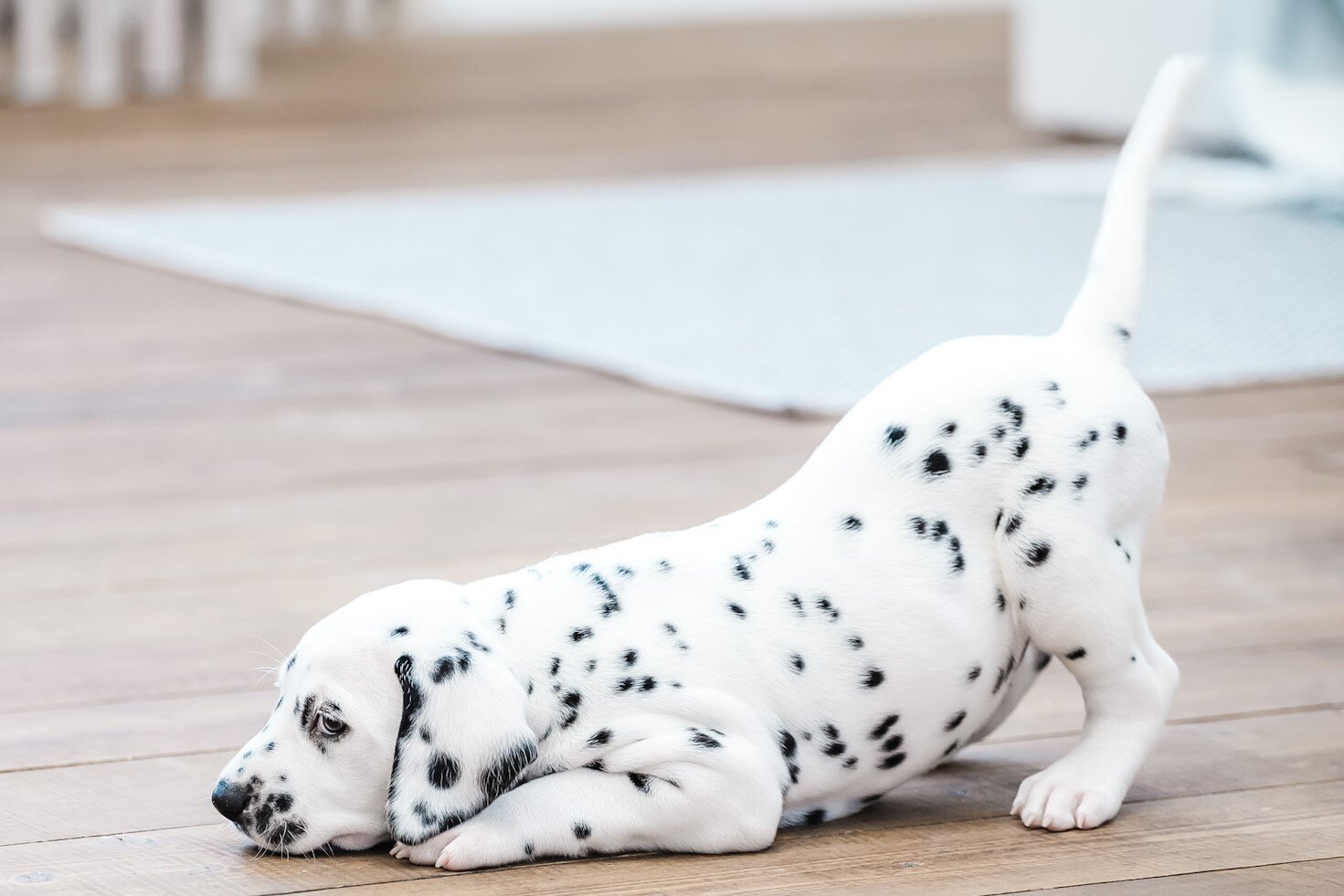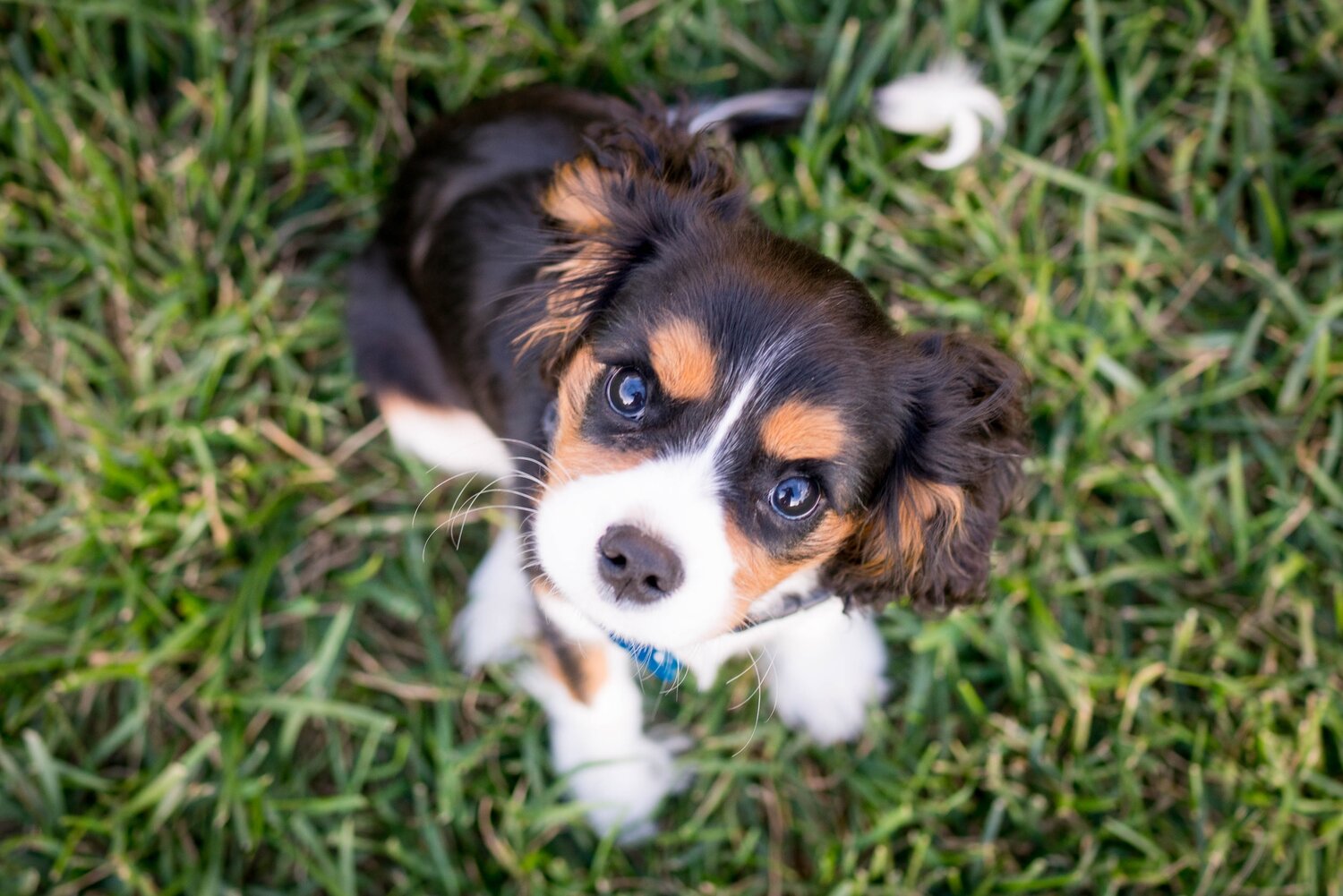Everyone wants their puppy to grow up to be a well-behaved dog but often our human responses to normal puppy behaviour doesn’t help us to help them!
I would say that the absolute most important thing to focus on with your puppy is building a positive and trusting relationship.
RULE #1: Reward the behaviours you like
This is really easy once you start thinking this way. You could put a portion of your puppy's daily food allowance to one side or use some tiny treats to simply capture and reward any behaviours that you see that you like. Dogs will repeat behaviours that pay off so you end up getting more of what you like.
Of course, you don't have to reward with food every time: if your puppy loves a chest rub or the opportunity to play with a toy, those count as rewards too.
RULE #2: Ignore the behaviours you don’t like
Remember, dogs will repeat behaviours that 'pay off' so every time your puppy gets your attention for doing something you'd rather they didn't, you are probably inadvertently reinforcing this behaviour.... making it more likely that they will do it again and again. Ignoring unwanted behaviour (as long as it is safe and appropriate to do so - see Rule #3) is a useful strategy with very young puppies who are just trying things out for the first time, to see what reaction it gets!

RULE #3: Prevent and re-direct your puppy from behaviours that you can’t (or shouldn’t) ignore
The truth is that there are some behaviours that it is not safe to ignore (eg. your puppy has picked up a piece of broken glass or is chewing on an electric cable). Equally, there are others that it would be unwise to ignore because they are self-reinforcing (this means that your dog will enjoy doing them, regardless of whether you give them attention for it or not). Such behaviours might include digging in the garden, running off to play with other dogs, jumping up at people, chewing on your skirting boards etc. You could ignore these behaviours all you like and your dog will still be having great fun, thereby making them more likely to do it again in the future.
So, management is all about preventing your puppy from practising behaviours that you don't want them to do, whilst working on teaching them the behaviours that you do want. This is where things like puppy pens, leads and long lines come in.
However, we must also think about giving the puppy an outlet for the behaviours that they need to perform. You can keep them busy and mentally stimulated with things like food puzzle toys, chews and kongs.
Undoubtedly, there will be times when you simply need to re-direct you puppy from unwanted behaviours which are unsafe or potentially self-reinforcing onto something more appropriate (a kind of ‘don’t chew on that, chew on this’, strategy). However, if you find yourself continually redirecting your puppy, this suggests that you need to tighten up on your management/ prevention, or you run the risk of your puppy learning that doing the unwanted behaviours are a great way to get you to engage with them!
Written by Gretta Ford at The Pitter Patter of Tiny Paws.



0 comments